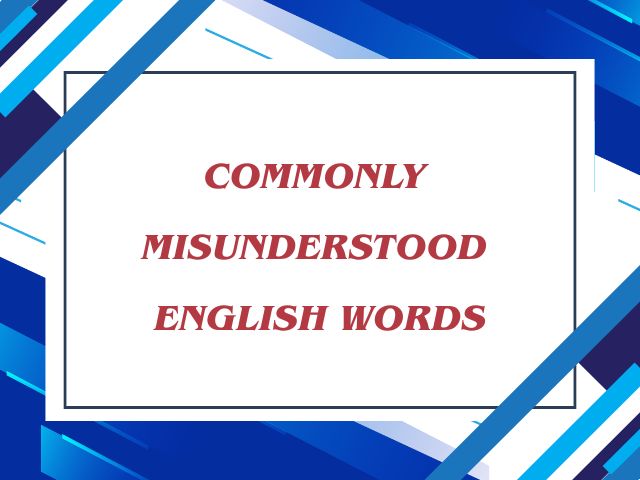Học IELTS: Trạng Từ Chỉ Xác Suất, Mức Độ Và Sự Hoàn Tất
Trong luyện thi IELTS, trạng từ chỉ xác suất, mức độ và sự hoàn tất là một phần kiến thức quan trọng. Trạng từ này được sử dụng để biểu thị mức độ chắc chắn hoặc không chắc chắn của một sự việc, cũng như mức độ hoàn tất của nó.
Việc hiểu và sử dụng các trạng từ này đúng cách có thể giúp bạn diễn đạt ý kiến, suy luận và phán đoán trong bài viết hay bài nói của mình. Ngoài ra, nếu bạn muốn đạt điểm cao trong bài thi IELTS của mình, kiến thức về các trạng từ này là rất quan trọng.
Trong phần tiếp theo, chúng ta sẽ tìm hiểu về các loại trạng từ chỉ xác suất (probability adverbs), các loại trạng từ chỉ mức độ (degree adverbs) và các loại trạng từ chỉ sự hoàn tất (completeness adverbs). Bằng cách tìm hiểu cẩn thận về những khái niệm này, bạn sẽ có khả năng áp dụng linh hoạt vào việc học IELTS của bạn.
7. Adverbs of probability (trạng từ chỉ khả năng có thể xảy ra)
Adverbs of probability, như certainly, probably, definitely, có thể đứng giữa chủ từ và động từ, sau trợ động từ xác định và trước trợ động từ phủ định:
You certainly made your position very clear.
They’ll probably change their minds.
They definitely won’t arrive on time.
However, maybe, và perhaps thường đứng ở đầu câu:
Perhaps/Maybe they’ll like each other.
8. Adverbs of degree (trạng từ chỉ mức độ)
Ta có thể sử dụng adverbs of degree để thay đổi cường độ của trạng từ và tính từ khác. Chúng đứng trước tính từ. Sau đây là một số trạng từ chỉ mức độ làm tăng cường độ của trạng từ và tính từ khác:
very really extremely incredibly absolutely
I’m really excited about the new James Bond film.
(mạnh hơn I’m excited about the new James Bond film.)
Một số trạng từ chỉ mức độ làm giảm cường độ của trạng từ và tính từ khác:
Slightly a bit quite fairly rather
He was a bit upset that he wasn’t invited to the party.
(không mạnh bằng He was upset that he wasn’t invited to the party.)
9. Adverbs of completeness (trạng từ chỉ sự hoàn tất)
Ta có thể sử dụng một số trạng từ mô tả hành động hoàn toàn cỡ nào. Trạng từ loại này gồm completely, totally, perfectly, virtually, practically, almost, hardly, scarcely. Chúng đứng giữa chủ từ và động từ hoặc sau trợ động từ:
I completely forgot her birthday. (= I don’t think of it at all.)
We have virtually finished the project. (= We have finished most of it.)
You’ll hardly have time for any lunch. (= You’ll have almost no time.)
Thực hành văn phạm luyện thi IELTS
5. Ta có thể sử dụng adverbs of probability để nói kế hoạch và các sắp xếp của ta chắc chắn hoặc không chắc chắn đến cỡ nào:
When we’re in New York, we’ll probably visit the Guggenheim Museum. Perhaps we’ll take one of those boat trips on the Hudson.
6. Ta có thể sử dụng adverbs of degree để so sánh hai hoặc nhiều hơn hai người, hai vật:
John dances quite well, but Joanna dances really well.
Children learn incredibly fast, whereas adults learn fairly slowly.
7. Ta có thể sử dụng adverbs of degree và completeness để bình luận cách một người hay một vật làm việc:
My watch is old, but it works perfectly well.
Brian is extremely conscientious and is practically never ill or late.
Bài tập luyện thi IELTS
C. Peter and Simon lead very different lives
Peter likes the quiet life, while Simon likes excitement. Underline the more likely adverb of degree in each case.
0 Peter didn’t want to go to work today because he was feeling rather / extremely ill.
0 Simon had to go to hospital today because he was rather / extreamely ill.
1 Peter had a cup of coffe because he was really / a bit tired.
2 Simon fell asleep at his desk because he was really / a bit tired.
3 Peter was very / fairly happy because he found a £5 note yesterday.
4 Simon was very / fairly happy because he won a car yesterday.
5 Peter likes to drive quite / incredibly fast but never breaks the speed limit.
6 Simon is a very dangerous driver because he likes to drive quite / incredibly fast.
D. Talking about certainty and uncertainty
Read this email from Matt to his sister Jas about his plans for the summer. Circle the correct word.
Hi Jas,
How are things? Just to let you know my plans for the summer.
Well, I think I’ll (0) maybe / probably / perhaps come home next week. I’m not sure exactly when yet, but (1) definitely / probably / maybe it’ll be next Monday. Tim is coming with me for a couple of days. Then we’re (2) perhaps / maybe / definitely going to Spain for a week or two to relax. His parents have a flat there, so we’ll (3) maybe / probably / perhaps stay with them because it’ll be free! When we come back I’ll (4) perhaps / definitely / maybe need to get a job to earn some money! (5) Probably / Certainly / Perhaps I’ll go back to the café I worked in last year – (6) maybe / definitely / certainly they’ll have some work for me again. Let’s hope so!
What about you? Have you (7) probably / definitely / maybe decided to get married? You (8) maybe / certainly / perhaps didn’t take long to make up your mind. I’ll (9) definitely / perhaps / maybe come to the wedding and (10) certainly / probably / maybe come to the wedding and (10) certainly / probably / maybe I’ll even wear a suit! You know how much I hate them though!
Take care. See you soon. Love, Matt
E. A foreign trip
Ryan and Lyn are discussing holidays. Conplete their conversation by filling each gap with two of the three expressions in brackets.
RYAN Do you (0) always go (always, go, perhaps) abroad for your holidays?
LYNN No, we stay (1) . . . . . . . . . . (at home, ever, most years). Foreign holidays (2) . . . . . . . . . . (are, never, usually) exhousting and we (3) . . . . . . . . . . (definitely, fairly, prefer) a quiet life. How about you?
RYAN We haven’t (4) . . . . . . . . . . (been, never, often) abroad but we went (5) . . . . . . . . . . (seldom, last year, to Spain).
LYNN Is it full of tourists?
RYAN No, Spain is a (6) . . . . . . . . . . (big, perfectly, very) country and the tourists tend to be (7) . . . . . . . . . . (always, in the summer, on the coast). We stayed mostly inland so we managed to avoid the tourist parts. We went through some villages that were (8) . . . . . . . . . . (empty, practivally, probably) because a lot of people have moved to the towns, but the people who were living there were (9) . . . . . . . . . . (absolutely, delighted, delightful) to see visitors. They (10) . . . . . . . . . . (made, certainly, maybe) made us very welcome.
LYNN Do you speak Spanish?
RYAN My wife speaks it (11) . . . . . . . . . . (fluent, fluently, quite), and she also speaks some Catalan. That was helpful when we were in Barcelona, in Catalunya, because it is (12) . . . . . . . . . . (different, differently, rather) from the rest of Spain.
LYNN Isn’t that where that famous cathedral is?
RYAN Yes, it’s called the Sagrada Familia. It’s (13) . . . . . . . . . . (absolutely, enormously, enomous) though not (14) . . . . . . . . . . (attractive, particular, particularly), if you ask me.
LYNN Would you like to go back to Spain?
RYAN Yes, we (15) . . . . . . . . . . (certainly, hardly, want) to go back, but it (16) . . . . . . . . . . (maybe, probably, will) be a few years before we can afford to go abroad again.
Đáp án:
C.
1. a bit 3. fairly 5. quite
2. really 4. very 6. incredibly
D.
1. maybe 5. Perhaps 9. definitely
2. definitely 6. maybe 10. maybe
3. probably 7. definitely
4. definitely 8. certainly
E.
1. at home most years 9. absolutely delighted
2. are usually 10. certainly made
3. definitely prefer 11. quite fluently
4. often been 12. rather different
5. to Spain last year 13. absolutely enormous
6. very big 14. particular attractive
7. on the coast in the summer 15. certainly want
8. practically empty 16. will probably
Nguyen Minh Son (26.07.2012)




